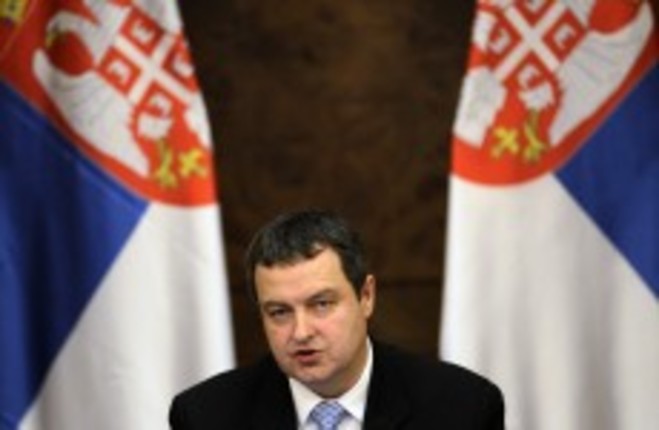SERBIA HAS REJECTED a Brussels-brokered proposal on easing tensions with breakaway Kosovo, seen as a key condition for EU integration talks to begin, but pledged to continue negotiations with Pristina.
“The government of Serbia cannot accept principles verbally presented to its negotiating team in Brussels, since they do not guarantee full security and protection of human rights to the Serb people in Kosovo,” Serbian Prime Minister Ivica Dacic told reporters.
However Belgrade “pledges an urgent resumption of dialogue with Pristina with EU mediation,” Dacic said.
A deal with Kosovo is the key Brussels-set condition for Serbia if it wants to start accession talks for EU membership later this year. A refusal could delay Serbia’s integration into the EU indefinitely.
EU foreign policy chief Catherine Ashton called on Serbia ”to make a last effort to reach an agreement” with Kosovo, a key condition for EU integration talks to begin.
Dacic spoke after the Serbian government met to draft a response to proposals made verbally in Brussels last week, when Belgrade and Pristina failed to find common ground on how to defuse their longstanding tensions.
Both sides are expected to respond to the proposals to EU foreign policy chief Catherine Ashton — who has chaired the eight rounds of talks between the Serbian and Kosovo delegations — by Tuesday.
Serbia and Kosovo have been under pressure from Brussels to strike a deal ahead of a European Commission report to be issued on April 16.
Proposal should be improved
The report, which EU leaders will evaluate at a late June summit, is crucial to paving the way for Serbia to join the bloc, as the beginning of membership talks are contingent on the improvement of relations with its former province.
Earlier, Serbia’s deputy Prime Minister Aleksandar Vucic, who took part in the last round of talks, said in an interview that Serbia wanted an agreement. However, he said that at the April 2 talks “eight points were read to us; six were acceptable for Belgrade, but two were not.”
The two disputed points relate to the sensitive issue of representation in the police force and law courts. Pristina objects to Belgrade’s insistence on full representation for Serbs in areas populated by a Serb minority in majority ethnic-Albanian Kosovo.
Conservative Serbian President Tomislav Nikolic said Sunday that the proposal “can and should be improved”. The influential Serbian Orthodox Church has called on the Belgrade leadership to reject the deal with Pristina.
The main stumbling block in the talks, which got under way late last year, has concerned the future of Kosovo’s Serb minority, especially in the north.
Kosovo declared independence from Serbia in 2008. It has since won recognition from more than 90 countries, including the United States and most EU member states.
Serbia and the some 40,000 Serbs living in northern Kosovo continue to reject Pristina’s declaration of independence.
Both sides earlier agreed to establish an association of Serb municipalities, but Kosovo refuses to grant it the executive and judicial powers demanded by Serbia.

